NCERT Class 4 EVS Chapter 5 – Anita and the Honey bees explains students to calculate the total school expenditure and also teaches them to think how they would like their school to be. This chapter also helps students to learn the characteristics and importance of honey bees to humans.
Honey bees are avoided because they sting, but it is important for us to understand that these creatures play a crucial role by providing the sweet honey. Students can download the NCERT Solutions from the links given below and can use it for future reference as well.
Download PDF Of NCERT Solution For Class 4 EVS Chapter 5
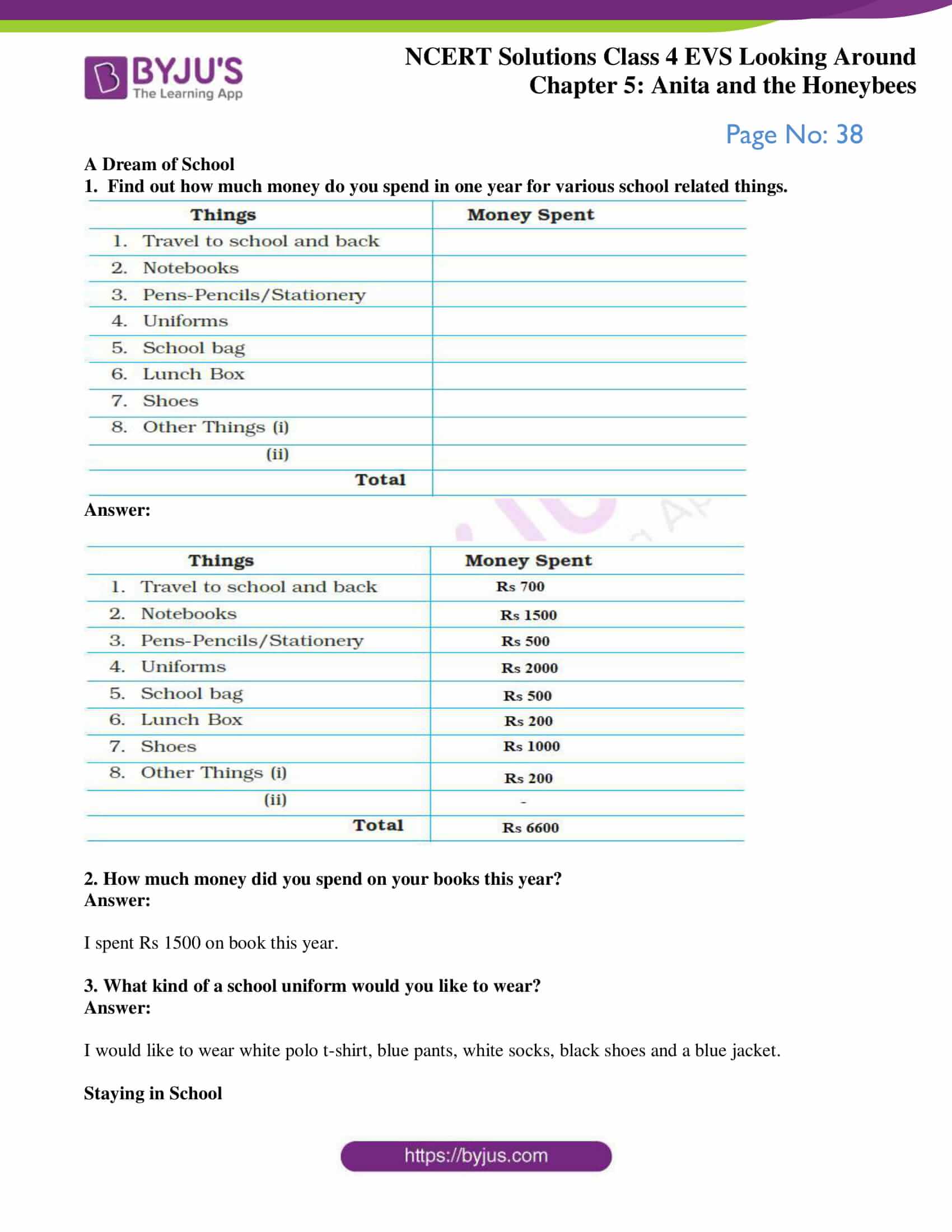
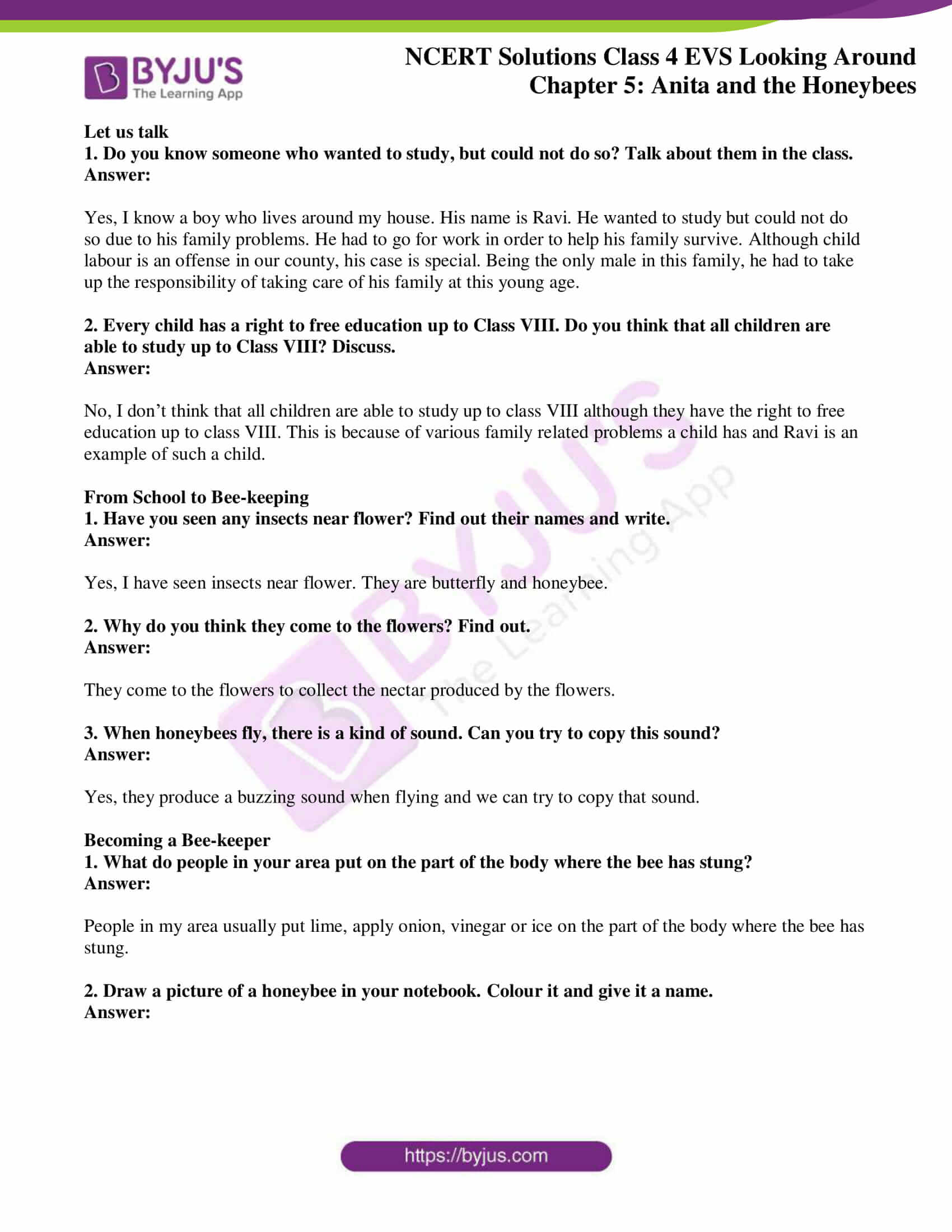
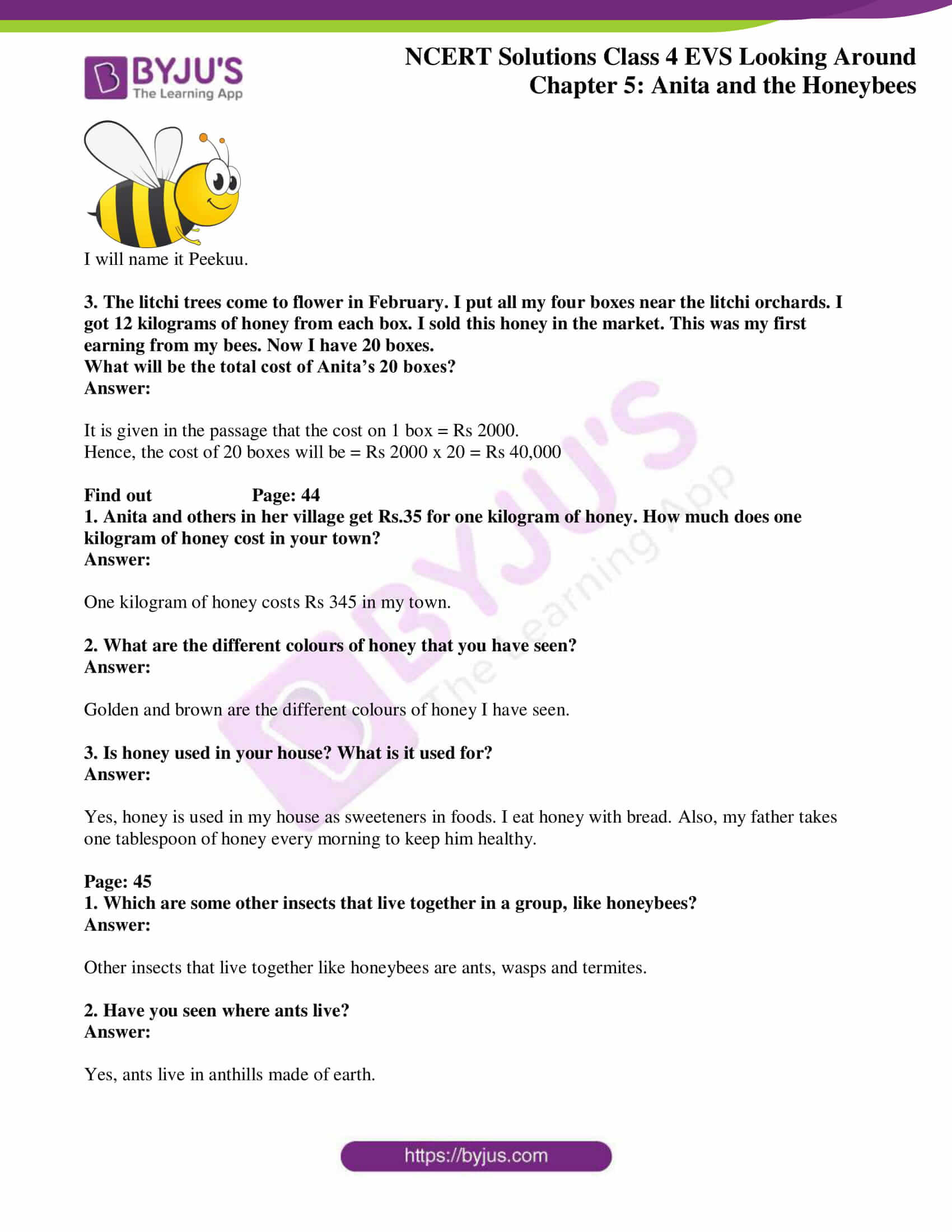

Access Ncert Solution For Class 4 EVS Chapter 5
Page No: 38
A Dream of School
1. Find out how much money do you spend in one year for various school related things.

Answer:
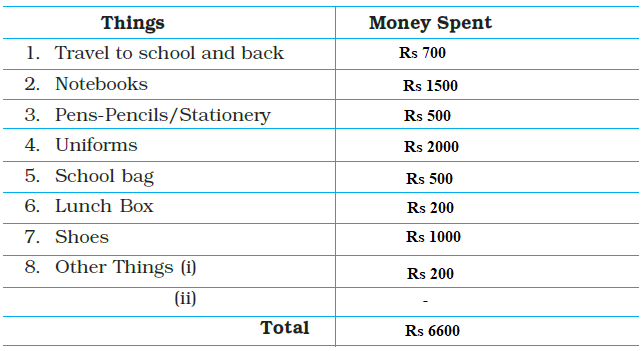
2. How much money did you spend on your books this year?
Answer:
I spent Rs 1500 on book this year.
3. What kind of a school uniform would you like to wear?
Answer:
I would like to wear white polo t-shirt, blue pants, white socks, black shoes and a blue jacket.
Staying in School
Let us talk
1. Do you know someone who wanted to study, but could not do so? Talk about them in the class.
Answer:
Yes, I know a boy who lives around my house. His name is Ravi. He wanted to study but could not do so due to his family problems. He had to go for work in order to help his family survive. Although child labour is an offense in our county, his case is special. Being the only male in this family, he had to take up the responsibility of taking care of his family at this young age.
2. Every child has a right to free education up to Class VIII. Do you think that all children are able to study up to Class VIII? Discuss.
Answer:
No, I don’t think that all children are able to study up to class VIII although they have the right to free education up to class VIII. This is because of various family related problems a child has and Ravi is an example of such a child.
From School to Bee-keeping
1. Have you seen any insects near flower? Find out their names and write.
Answer:
Yes, I have seen insects near flower. They are butterfly and honeybee.
2. Why do you think they come to the flowers? Find out.
Answer:
They come to the flowers to collect the nectar produced by the flowers.
3. When honeybees fly, there is a kind of sound. Can you try to copy this sound?
Answer:
Yes, they produce a buzzing sound when flying and we can try to copy that sound.
Becoming a Bee-keeper
1. What do people in your area put on the part of the body where the bee has stung?
Answer:
People in my area usually put lime, apply onion, vinegar or ice on the part of the body where the bee has stung.
2. Draw a picture of a honeybee in your notebook. Colour it and give it a name.
Answer:
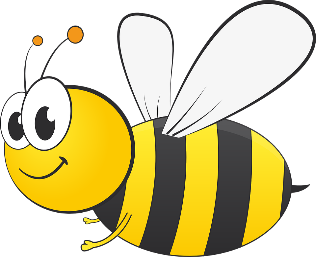
I will name it Peekuu.
3. The litchi trees come to flower in February. I put all my four boxes near the litchi orchards. I got 12 kilograms of honey from each box. I sold this honey in the market. This was my first earning from my bees. Now I have 20 boxes.
What will be the total cost of Anita’s 20 boxes?
Answer:
It is given in the passage that the cost on 1 box = Rs 2000.
Hence, the cost of 20 boxes will be = Rs 2000 x 20 = Rs 40,000
Find out Page: 44
1. Anita and others in her village get Rs.35 for one kilogram of honey. How much does one kilogram of honey cost in your town?
Answer:
One kilogram of honey costs Rs 345 in my town.
2. What are the different colours of honey that you have seen?
Answer:
Golden and brown are the different colours of honey I have seen.
3. Is honey used in your house? What is it used for?
Answer:
Yes, honey is used in my house as sweeteners in foods. I eat honey with bread. Also, my father takes one tablespoon of honey every morning to keep him healthy.
Page: 45
1. Which are some other insects that live together in a group, like honeybees?
Answer:
Other insects that live together like honeybees are ants, wasps and termites.
2. Have you seen where ants live?
Answer:
Yes, ants live in anthills made of earth.
3. What kind of eatables attract ants? List them.
Answer:
Ants are attracted to sugary items, grains, dead insects etc.
4. Look at a line of ants. What is its colour?
Answer:
They are of black, brown or red colour.
5. Have you been bitten by an ant? What was the ant like – black or red, big or small?
Answer:
Yes, I have been bitten by ant. It was big red ant.
6. Do ants ever come near you? When?
Answer:
Yes, they do come near me when sugar, sweets or other eatables are lying around me.
7. Look carefully at some big and small ants. How many legs does an ant have?
Big ant _______
Small ant _______
Answer:
No matter what size, both the big and small ants have 6 legs.
